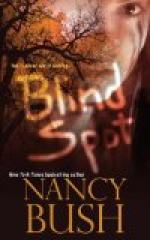“Why?”
“It was neglect, unthinking and selfish. A time came when our civilisation made it possible to live without other creatures. When machinery came into vogue we put aside the animals as useless; those we had no further use for we denied the right to reproduce. The game of the forest was hunted down with powerful weapons of destruction; all went, in a century or two; everything that could be killed. And with them went the age of our highest art, that age of domesticated animals.
“Our greatest paintings, our noblest sculpture, came from that age; all the priceless relics that we call classic. And in its stead we had the mechanical age. Man likewise became a mechanism, emotionless, with no taste for Nature. Meat was made synthetically, and so was milk.”
“You don’t mean to say they did not preserve cows for the sake of their milk?”
“No; that kind of milk became old-fashioned; men regarded it as unsanitary, fit only for the calves. What they wanted was something chemically pure; they waged war on bacteria, microbes, and Nature in general; a cow was merely a relic whose product was always an uncertainty. With no reason for the meat and no use for the milk, our vegetarians and our purists gradually eliminated them altogether. It was a strange age; utilitarian, scientific, selfish; it was then headed straight for destruction.”
And he went on to relate how men began to lose the power of emotion; there were no dependent beasts to leaven his nature with the salt of kindness; he thought only of his own aggrandisement. He became like his machine, a fine thing of perfectly correlated parts, but with no higher nature, no soul, no feeling; he was less than a brute. The animals disappeared one by one, passing through the channel of death, into the world beyond the Spot of Life, leaving behind only these tiny survivors, playthings, kept in existence longer than all others because of a mere fad.
“Does your spiritism include animals as well as men?”
“Naturally; everything that is endowed with life.”
“I see. Let me ask you: why didn’t the Rhamdas interfere and put a stop to this wanton sacrilege against Nature?”
The Rhamda smiled. “You forget,” replied he, “that these events belong far in the past. At that time the Rhamdas were not. It was even before the coming of the Jarados.”
Watson asked no more questions for a while. He wanted to think. How could this man Rhamda Geos, if indeed he were a man, accept him, Watson, as a spirit? Solid flesh was not exactly in line with his idea of the unearthly. How to explain it? He had to go back to Holcomb again. The doctor had accepted without question Avec’s naturalness, his body, his appetite. Reasonably enough, Geos, with some smattering of his superior’s wisdom, should accept Watson in the same way.
And then, the Jarados: at every moment his name had cropped up. Who was he? So far he had heard no word that might be construed as a clue. The great point, just now, was that the Rhamda Geos accepted him as a spirit, as the fact and substance promised by Avec. But—where was the doctor?




